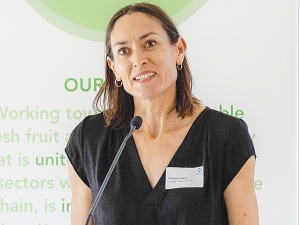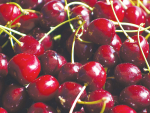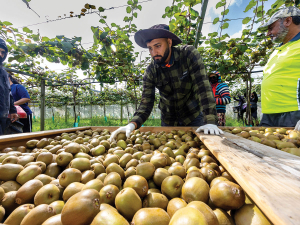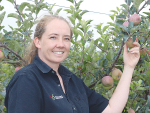A recent independent evaluation has revealed that the Fruit and Vegetables in Schools (FIS) initiative continues to be NZ's most popular and effective healthy food programme.
The survey, conducted on behalf of the 5+ A Day Charitable Trust supporting the Te Whatu Ora funded initiative, interviewed school principals who said that FIS helped them assist whānau with the high cost of living, remove stress from providing fresh produce for children and assist to send excess fruit to needy homes from time to time.
Roni Nepia is principal of Putere school in the Wairoa district, which serves a predominantly farming community. Having been principal for 7 months and having previously worked as a teacher in Australia for 15 years, she says the impact is very clear.
"In Australia, fruit and veg was really expensive, so it would not have been part of their diets. Fast food would have been in their diets; the only kind of veggies would have been the lettuce and tomato in a McDonald's burger," she told Hort News. "I think the [Putere] students and community have seen a greater appreciation of the fruit in schools, it's not taken for granted."
Nepia adds that even those in Putere without kids have become involved in the scheme, showing the students how to bottle and make jams and preserves.
Piloted in 2004, the initiative covers 566 primary schools and over 120,000 children and staff across the nation, providing over 27 million servings of fresh fruit and vegetables every year.
Of surveyeed principals, 90% said the integration of fruit into the school day was an effective tool which encouraged healthy eating. Meanwhile, 95% of surveyed principals believed the combination of both free school lunches and FIS was essential. 72% of surveyed principals agreed or strongly agreed that 'if Fruit in Schools ended, academic outcomes would suffer'.
United Fresh project manager Carmel Ireland says the feedback was affirming, particularly in how schools can use the flexible scheme to support their communities, but she is still concerned at the need that exists in the community.
"Food insecurity has reached even greater heights than before the pandemic. The review shows just how hard it has become for whānau to put nutritious food on the table with 93% of principals saying FIS supported them to feed hungry children."
Nepia says that following Cyclone Gabrielle and the financial crisis, some families were struggling to make ends meet.
"Predominantly meat farmers, just replenishing what little veggies they've got in their garden is a cost, a struggle."
The review follows similar evaluations in 2014 and 2018. This year it takes into account new schemes such as the Government's Ka Ora, Ka Ako - Free Healthy Lunches programme. Ireland said that with more support arriving in schools, the evaluation demonstrated that FIS still has a vital role to play, providing safe environments based on healthy choices.
Alongside the fresh produce, FIS provides schools with curriculum resources produced by 5+ A Day to teach healthy lifestyles.


















